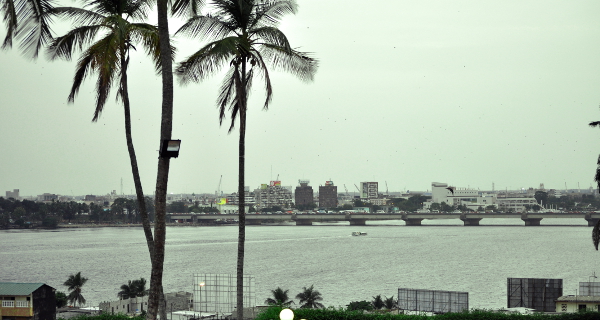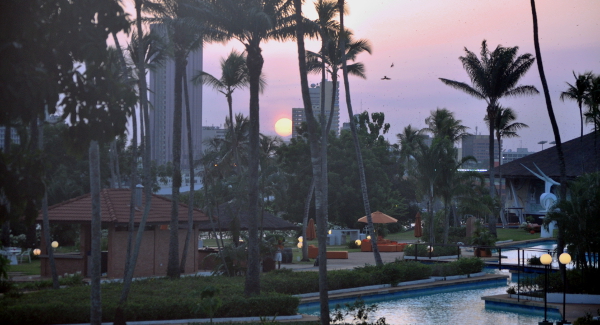Discovering Abidjan on the sidelines of the Africa CEO Forum
I have heard Abidjan referred to as the “Paris of Africa”, and so when I headed off to Côte d’Ivoire’s economic capital last Sunday, I was curious to find out why.
It is true that there are some similarities to Paris. For starters, the native language of both cities is French, and those that do not speak it will have to practise their charades skills. And, just like Paris, Abidjan can be expensive for an outsider. For example, some hotels, restaurants and tourist attractions will happily have you pay well over US$5 for a can of coke or a small bottle of water.
But mostly I felt the comparison might have more to do with the city’s surprising charm than the actual realities. Physically, Abidjan is nothing like Paris, although just as beautiful. As my flight descended over the metropolis just after sunset, I saw waterfront resorts lit by lanterns and luminous lights dangling from trees that instantly made me think of an island off the coast of Southeast Asia. The palm trees – everywhere – only added to the feeling of being on holiday, while the heat and humidity can make you long for a dip in the vast Ébrié Lagoon or a trip to the beach.
I was also fortunate to experience a tropical thunderstorm and witness the city’s bright green plant life get showered with heavy rain, before the sun broke out like it had never disappeared. And one of my most disappointing moments was failing to adequately capture with my camera a very orange and clear silhouette of the sun, setting between two large buildings in the distance.
More than a pretty face
Abidjan was also the location for this year’s Africa CEO Forum, which has previously been held in Geneva. The decision to host the conference in Abidjan reflects an improving business and investment sentiment around Côte d’Ivoire, which I have come across in my job. For starters a recent report released by Nielsen Africa suggested that Côte d’Ivoire is now leading the continent in terms of investors’ overall outlook for opportunities. The position was previously held by Nigeria.
Furthermore, considering the continent’s current economic headwinds, Côte d’Ivoire is experiencing impressive growth, despite emerging from civil war in 2011. Over the past four years the francophone West African country has grown by over 9%, while the IMF predicts GDP growth to be around 8.4% this year. And the recently re-elected President Alassane Ouattara has also promised to make Côte d’Ivoire an emerging country by 2020.
It is difficult not to notice the opportunities. Côte d’Ivoire is the world’s leading producer in cocoa, the soft commodity that has been rising in value over the past three years. According to Partheeban Theodore, country head for agribusiness company Olam, which processes cocoa locally, the manufacturing opportunities in Côte d’Ivoire are huge.
Formal retail is also growing with the entrance of French retailer Carrefour as the anchor in a beautiful 20,000m² shopping centre, featuring a number of upmarket shops and the first regional store for American fast-food chain Burger King. A quick walk around Carrefour on a Thursday afternoon and it was clear that it was not short of middle-class customers looking for a modern shopping experience.
High security following attack
But of course no talk of Côte d’Ivoire’s potential can take place without mention of the recent terrorist attack that saw gunmen claim the lives of 16 people in the beach resort area of Grand Bassam, about 45km east of Abidjan. The news of this seemed to be in complete contrast to the safety I felt walking through the streets of Abidjan.
But security is high at shopping malls and other public areas, and I hope that the government is successful in stemming future attacks. It would be sickening to see all this opportunity and optimism get weakened by terrorism in yet another high-potential African market.




